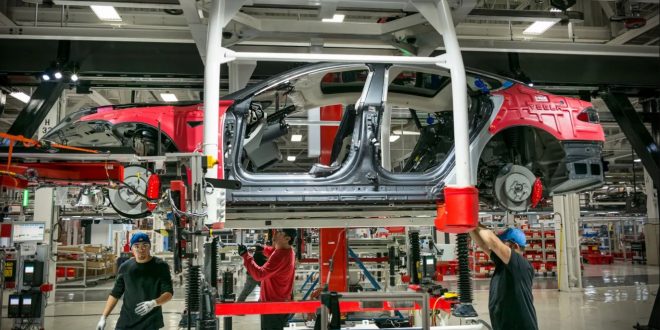On Thursday, the EEOC sued Tesla for tolerating widespread and ongoing racial harassment of its Black employees and retaliating against those who opposed it.
Tesla faces multiple racial bias lawsuits from the federal agency that enforces civil rights laws. Tesla was sued by the California Civil Rights Department in 2022 for similar claims. After Tesla allowed severe racial harassment at its Fremont assembly plant, a jury awarded Owen Diaz, a Black former employee, $3.2 million in damages in April.
Tesla disclosed in a financial filing in April 2022 that the EEOC had a “open investigation” into the company. Tesla underwent mandatory agency conciliation. The unsuccessful process led to the Thursday lawsuit.
Black workers at that factory have faced “severe or pervasive racial harassment” and “a hostile work environment” since 2015, according to the EEOC.
The filing describes stereotyping and hostility, such as being called “lazy,” “smelly,” and “always late.” They also say they endured N-word slurs, “monkey,” “boy,” and “black bitch.” The lawsuit claims these slurs were casually used in high-traffic areas and worker hubs.
“I saw KKK epithets, a swastika, and the N-Word all over the bathroom,” a Black worker said in the lawsuit. It was disgusting and racist, so I won’t talk about it. The message would be “kill black people, kill N-Words, hang black people, hang N-Words.”
According to EEOC, Black workers reported seeing noose-themed graffiti on desks, elevators, and equipment, including vehicles rolling off production lines.
“Supervisors and managers witnessed racially offensive conduct but failed or refused to intervene,” the lawsuit states. Tesla failed and refused to address the behavior after black employees reported the slurs, insults, graffiti, and misconduct to human resources, employee relations, and managerial personnel.
After reporting or opposing racial harassment, Tesla allegedly fired Black employees within weeks.
One Black worker says, “After I voiced my unhappiness [about the harassment], I started getting written up for every little thing that was acceptable before like listening to music while working.”
Tesla is accused of violating Title VII of the Civil Rights Act of 1964, amended in 1991, which requires employers to correct race-based discrimination and provide appropriate relief.
If you drop a standard, you set a new one. Determining that prolific racial slurs do not warrant serious discipline and failing to correct harassing conduct sends the wrong message to employees, said EEOC San Francisco district office director Nancy Sienko. It also breaches an employer’s duty to promptly and effectively address race-based harassment.
Tesla’s press department closed in 2020 and could not be reached.
The EEOC wants a jury trial and Tesla to pay damages and fines for breaking the law. The agency also asks the court to grant a permanent injunction against Tesla management that allowed racism to flourish and order Tesla to implement and implement policies to protect Black workers.
EEOC v Tesla, Inc., Case No. 4:23-cv-04984, was filed in the Northern District of California.
 Tech Gadget Central Latest Tech News and Reviews
Tech Gadget Central Latest Tech News and Reviews




